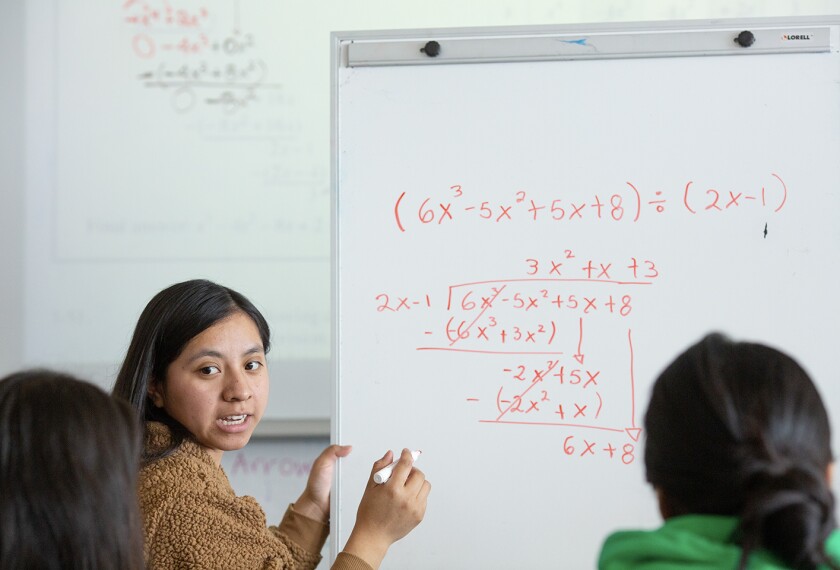Over the past six months, I’ve had an extended conversation about “equitable grading” with Joe Feldman, the author of Grading for Equity (see here, here, here, here, and here). It’s been a lively conversation that has sparked a lot of thoughtful feedback and strong reactions. Well, I recently received one response from veteran Fairfax County, Va., teacher Eric Wolf Welch, which seemed well worth sharing. Fairfax County to adopt equitable grading in 2022. Welch, an AVID program coordinator and social studies teacher at the district’s Justice High School, is leading a group of educators, parents, and community members who want the district to reverse course. Here, he makes his case, explaining why “equitable” grading undercuts the educational value of grades by focusing too narrowly on content mastery.
‸龱����
Dear Rick,
Thank you for covering the issue of grading and developing a deeper understanding of this important debate going on in education right now.
I am a high school teacher in the Fairfax County public schools in northern Virginia. My district adopted the “grading for equity” policies you’ve discussed, making us an early adopter of these reforms. I lead a group of educators, parents, and other community members in advocating these policies be reconsidered.
I think it is helpful to understand that the debate over grading boils down to one simple question: What is the purpose of grading? By focusing on that question, it becomes easier to evaluate which approach is best.
In this debate, there are two camps. The first is the “grading for equity” camp, the philosophy on grading advanced by Joe Feldman, among others. As you’ve pointed out in your discussions with Feldman, this camp believes traditional styles of grading are too subjective, fail to truly measure a student’s mastery of content since noncontent tasks factor into the final grade, and are not equitable because they too often favor those with socioeconomic advantages. In their view, things that don’t measure a student’s mastery of content—homework, classroom participation, student behavior, meeting deadlines, and even attendance—should not count toward a student’s grade. All that should matter are the “summative assessments,” or the big tests that display how much a student knows on a specific subject. Most notably, retaking these tests over and over until a desirable result is reached is acceptable, since equitable grading advocates believe that with each retake the student’s mastery over the content increases.
The other camp believes that grading is a holistic measure of a student. This “holistic grading” approach is based on the notion that a grade is a tool to help students develop the skills, traits, habits, and attitudes to be a successful learner. A major part of holistic grading is knowing the content. But another, equally important part is demonstrating the ability to be an engaged student. That means coming to class on time, participating in class activities, turning in assignments on time, demonstrating intellectual curiosity, collaborating with others, and putting in the effort to learn. In the long run, these characteristics matter much more to a student’s success in life than simply their mastery of content.
This is why I am strongly in the holistic-grading camp. Think about the students we are trying to produce. Do we simply want to measure what a student knows about a specific academic subject? Or do we want to measure how a student learns and all that comes with it? Which is going to better prepare an adolescent for success in life?
Grading for equity advocates will argue holistic grading is too subjective. My answer to that objection is that life is subjective. A job interview is subjective. A business proposal is subjective. A doctor’s “opinion” is subjective. This fear that our grades may be too subjective ignores reality.
That said, our grading should not be entirely subjective. Our expectations of students should be well communicated. We should have clear rubrics for how we grade. There should be standardized tests on the content that factor into the student’s overall grade. But the score on that test should not determine a student’s entire grade. Instead, the test should be one part of a holistic measure of the student.
This debate is not just a trivial matter for teachers. How we grade students will impact how they develop into the next generation of citizens. I ask very seriously: What do we want that next generation to know, how to pass tests or how to be productive, ethical, and responsible members of society? I think the answer should be the latter.
The grading for equity camp claims that in their system, students will learn all these essential skills and work habits; they’re just not graded on them. 69��ý will develop these skills and work habits as part of the process of preparing for the tests—studying, participating in class, and completing homework. That’s a rational way of thinking. However, as any parent or teacher knows, teenagers do not always think rationally. I would say any human being, and especially teenagers, will not do something they don’t want to do if they are not held accountable.
Two years ago, representatives from my school’s student government spoke to teachers and administrators about a variety of topics, including grading. I’ll never forget the statement from one low-income, minority student, the exact type of student the grading for equity camp claims they’re so concerned with: “If you don’t grade it, I won’t do it.” I find it shocking that school leaders and education experts who advocate equitable grading, like Feldman, do not understand this element of human behavior.
The ability to handle accountability is, in my opinion, the most important thing a student should learn in school. When we eliminate that from our grading, we no longer prepare students for success in life. If we focus on that objective, it becomes easy to understand why the grading for equity approach should not be adopted.
Thanks again for your continued attention to this critical topic.





